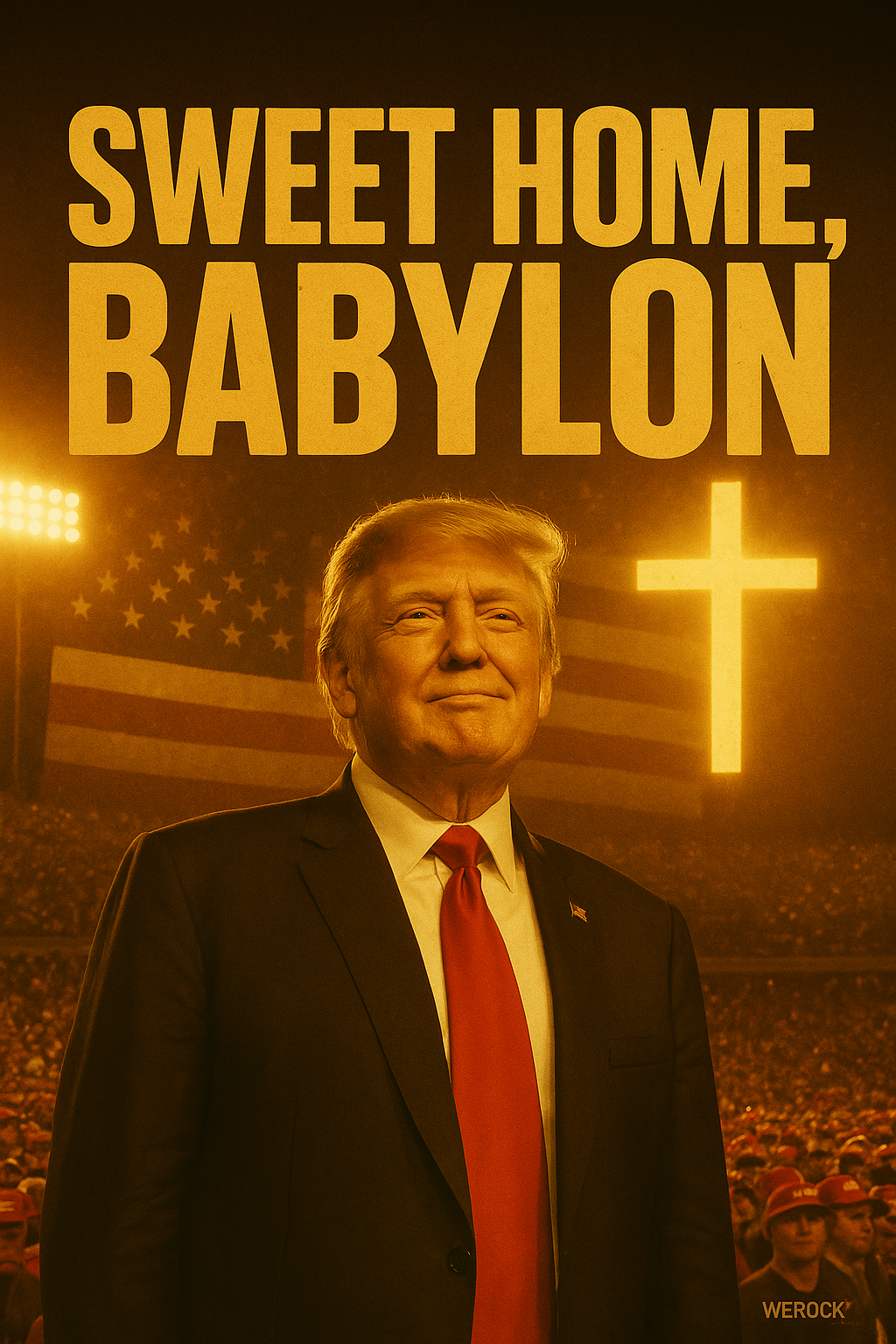“In Birmingham they love the governor, boo, boo, boo. Now we all did what we could do. The Watergate does not bother me. Does your conscience bother you? Tell the truth.”
Lynyrd Skynyrd
Ten years ago, a billionaire from New York walked into the heart of the Bible Belt — and the ground hasn’t stopped shaking since.
That humid August night in 2015, Donald Trump stepped onto the field of Ladd-Peebles Stadium in Mobile, Alabama, to the sound of Lynyrd Skynyrd’s “Sweet Home Alabama.”
The crowd roared. The stadium lights burned like revival fire.
Trump joked about his hair, jabbed at the media, and turned a political stump speech into something stranger — part tent revival, part reality show.
He spoke about immigration, trade, and “winning” — but what really took shape that night wasn’t a platform. It was a movement.
For the first time, America saw what would become the Trump Rally — a fusion of politics, populism, and performance that would define a decade.
“If it rains, I’ll take my hat off and prove it’s mine,” he quipped. The crowd erupted.
Behind the scenes, few in the Republican establishment wanted to touch him.
Senator Jeff Sessions stood beside him that night — a gesture that would ignite a chain reaction across the South.
State Rep. Barry Moore, after a quick prayer in an RV, became the first Alabama lawmaker to endorse Trump, calling it a leap of faith.
He wasn’t wrong.
Within months, Trump’s rallies multiplied. The media mocked, the crowds grew, and a populist storm swept across America.
By the time he returned to Mobile for his “Thank You” rally in 2016, the outsider had become the president — and the fault lines in America’s soul had widened.
Religious historian Wayne Flynt later called it “a turning point in American Christianity.”
The moral tests that once defined evangelical faith — purity, humility, repentance — were replaced by a single creed: loyalty to the cause.
“Both theological sides have rationalized political conduct for decades,” Flynt said. “It’s the slow but certain secularization of America.”
What began as a political rally became a mirror — one reflecting a people torn between revival and rebellion, between faith and power.
Trump hasn’t returned to Mobile since.
But the echo of that night — the chants, the crimson caps, the sound of Sweet Home Alabama — still haunts the air.
The crowd wasn’t just cheering for a man.
They were announcing the arrival of a new religion: the worship of power itself.
